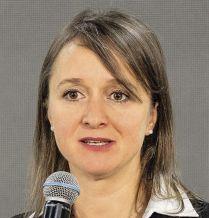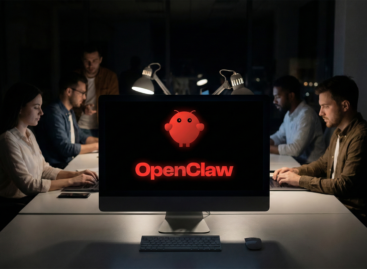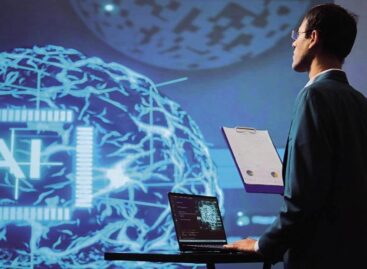Dea Frankó Csuba at the Inno d’Or conference: a future that can be shaped
According to futurologist Dea Frankó Csuba, futurology is no longer about predicting the future, but rather a strategic tool that helps to consciously identify innovation directions.
This article is available for reading in Trade magazin 2025/8-9.

Dea Frankó Csuba
futurologist
Weak signals, strong shifts
In her opening presentation at the Innovation Day conference, she showed how future studies can be integrated into corporate decision-making. The essence of the participatory approach is that by identifying early signs of change in technological, social, economic and environmental systems, scenarios can be developed that serve not only competitiveness, but also long-term sustainability – and AI plays a key role in this. Future research is based on identifying weak signals of change, barely perceptible but recurring patterns. Dea Frankó Csuba emphasised that such signs can herald radical turning points.
A marketable answer from the future
Future-shaping innovation isn’t a goal but a consequence if we ask the right questions at the right time. Identifying weak signals isn’t only the basis for strategic scenarios, but also a critical tool from a business perspective. Companies that recognise these discrete but recurring patterns in time are able to respond earlier to new consumer attitudes, regulatory trends or competitor moves. Future research is therefore not just an inspiring thought exercise, but a data-driven market intelligence methodology that offers actual competitive advantages. Future studies don’t prepare us for a single future, but build scenarios based on different possibilities: conceivable, probable and desirable visions of the future. In her presentation the speaker introduced a framework for compiling and evaluating these scenarios.
The challenges of future studies
One of the biggest obstacles to future studies is the human mind itself. Since our brains are fundamentally geared toward survival and based on past patterns, we find it difficult to imagine radically new, alternative visions of the future. Social and consumer reactions to technological breakthroughs are often unpredictable. This is why AI plays a key role in future studies: AI systems are capable of using different consumer personas – so-called AI agents – for behaviour modelling in a simulated environment, allowing future market scenarios to be tested in advance.
Personal futurists and algorithms that take action
AI’s development goes beyond analysis and modelling – it is now capable of making decisions and executing actions. Dea Frankó Csuba emphasised in her presentation: large language models (LLMs) that power generative AI will soon be replaced by Large Action Models (LAMs), which not only answer questions but are also capable of independently controlling processes. In the future every manager will have a personal futurologist, an AI-based assistant that synthesises the future prospects of a given industry to support strategic decisions. The futurologist’s team has already developed an AI-based virtual colleague that participated in corporate transformation processes and responded to interactions at live conferences.
Related news
Hungarian world first: AI calculator calculates how much a company will lose during the flu season and how much can be saved by using preventive technologies
🎧 Hallgasd a cikket: Lejátszás Szünet Folytatás Leállítás Nyelv: Auto…
Read more >Tuned to efficiency
🎧 Hallgasd a cikket: Lejátszás Szünet Folytatás Leállítás Nyelv: Auto…
Read more >Related news
Impossible Foods featured on the “Best in Business” list again this year
🎧 Hallgasd a cikket: Lejátszás Szünet Folytatás Leállítás Nyelv: Auto…
Read more >








